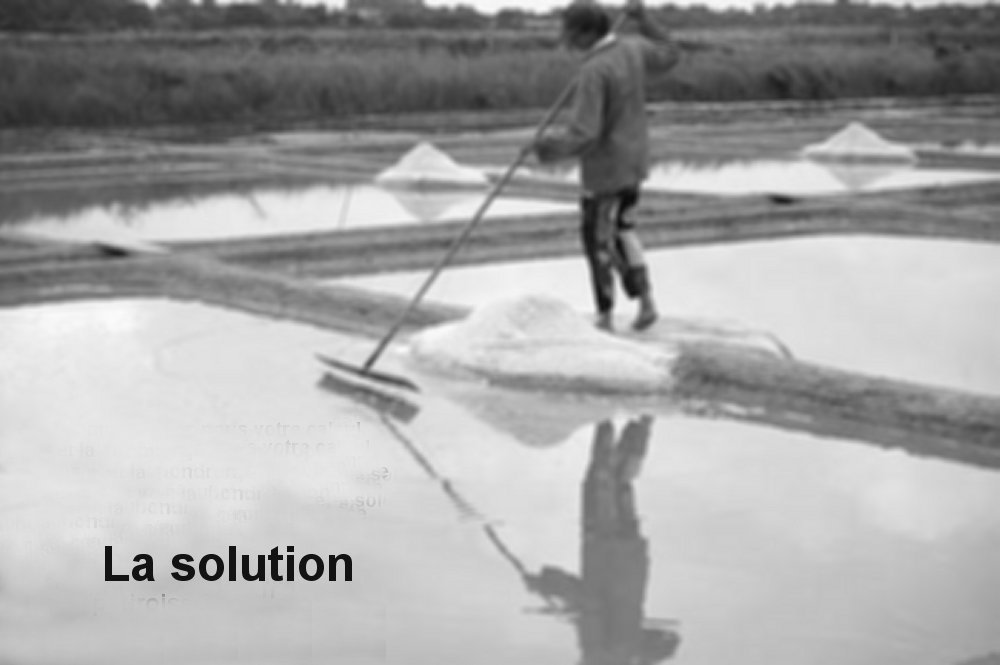



The problem of the salt marsh worker
One litre of sea water weighs 1026 g and contains 27 g of salt.
To what volume should 200 litres of sea water be reduced by evaporation ?
so that the liquid contains fifteen percent of its weight in salt ?
It was a problem given to an examination paper of the primary school certificate at the beginning of the XXe century.
The pupils were 14 years old and had never learned algebra.

If 1 litre of sea water weighs 1026 g and gives 27 g of salt,
200 litres will weigh 1026 x 200 = 205200 g and will give 27 x 200 = 5400 g of salt.
The liquid that will evaporate is pure water, the weight of salt contained will not change.
There will always be 5400 g of salt left.
We want these 5400 g to represent 15 percent of a certain weight of brine to be found.
We need to make a « rule of three ».
Reasoning :
if 5400 g represents 15 hundredths of this weight,
1 hundredth will weigh 15 times less and 100 hundredths 100 times more.
Brine weight: (5400/15) x 100
Tip:
it is a division followed by a multiplication.
However, a division rarely falls right, there is often a small error which then risks,
multiplied by 100, to become a big error.
This risk is eliminated by starting with multiplication.
This brine weight will therefore be (5400 x 100) / 15 = 36000 g or 36 kg.
Our 200 litres of sea water weighed 205200 g or 205.2 kg
The pure evaporated water thus represents a weight of 205.2 - 36 = 169.2 kg.
Since 1 litre of pure water weighs exactly 1 kg, these 169.2 kg represent 169.2 litres of evaporated water.
The volume of brine thus reduced will therefore be 200 - 169.2 =
30.8 litres or 30.8 dm3.